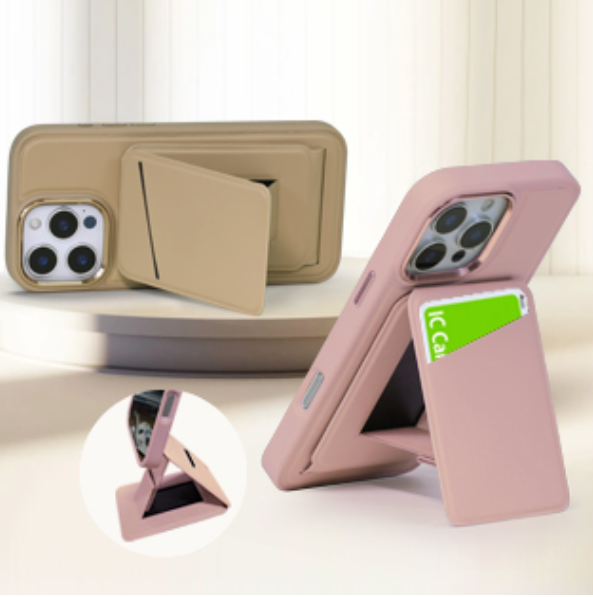The global phone accessories market is projected to reach $107 billion by 2027, with custom phone cases representing one of the fastest-growing segments. For wholesalers entering this lucrative space, the path to profitability hinges on one critical decision: choosing the right manufacturing partner. Many businesses discover too late that unreliable manufacturers deliver inconsistent quality, miss deadlines, or provide cases that fail basic durability tests. These mistakes don’t just eat into profit margins—they destroy customer trust and create inventory nightmares that can sink a resale operation before it gains momentum.
The consequences of partnering with substandard suppliers extend beyond immediate financial losses. When bulk phone cases arrive with defects or design flaws, wholesalers face costly returns, damaged relationships with retailers, and wasted marketing investments. This article cuts through the confusion by providing concrete criteria for evaluating manufacturers, from material certifications to production scalability. You’ll learn how to identify red flags, conduct proper vetting, and establish partnerships that support long-term growth. Whether you’re launching your first bulk order or switching suppliers, these guidelines will help you make informed decisions that protect your business and maximize your competitive advantage.
Why Manufacturer Selection Impacts Your Wholesale Business
Choosing the wrong manufacturer creates a domino effect that threatens every aspect of your wholesale operation. Defective products force you to absorb replacement costs, slashing profit margins by 20-40% on affected inventory. When retailers receive substandard wholesale custom phone cases, they return merchandise and reconsider future orders, directly damaging your brand reputation in a market where word-of-mouth spreads rapidly through industry networks. Delayed shipments compound these problems by creating inventory gaps during peak sales periods, leaving you unable to fulfill orders while competitors capture market share.
The right manufacturing partner transforms these vulnerabilities into competitive strengths. Consistent quality allows you to command premium pricing while reducing return rates to industry-leading levels below 2%. Reliable production schedules enable accurate inventory forecasting and just-in-time delivery that optimizes cash flow. Manufacturers with advanced customization capabilities help you offer unique designs that differentiate your catalog from commodity sellers flooding marketplaces with generic products. This quality differentiation builds retailer loyalty and justifies higher wholesale prices, creating sustainable margins that fund business expansion rather than covering losses from manufacturing failures.
Essential Criteria for Evaluating Custom Phone Case Manufacturers
Material Quality Standards for Durable Phone Cases
The foundation of any reliable phone case starts with material selection. TPU (thermoplastic polyurethane) offers superior shock absorption and flexibility, making it ideal for cases requiring cushioning against drops, while polycarbonate provides rigid structural protection with scratch resistance for slimmer designs. Demand manufacturers provide drop-test certifications demonstrating their cases withstand falls from at least 1.5 meters without cracking or deforming. Verify chemical safety compliance through REACH and RoHS certifications, which confirm products contain no hazardous substances—essential for selling in European and North American markets. Request fade-resistance test results showing printed designs maintain color integrity after 500+ hours of UV exposure, preventing customer complaints about discolored cases within months of purchase.
Customization Capabilities for Brand Differentiation
Manufacturing flexibility determines whether you can offer distinctive products or generic replicas. UV printing delivers vibrant, detailed graphics with fast turnaround times, while dye sublimation creates permanent, scratch-proof designs embedded into materials—ideal for premium lines. Evaluate whether manufacturers offer custom mold creation for unique case shapes or textured finishes that competitors can’t easily replicate. Packaging personalization options, from branded boxes to custom inserts, transform standard products into memorable unboxing experiences that retailers value. Clarify minimum design complexity thresholds upfront—some factories struggle with intricate patterns or gradient effects, limiting your creative options and forcing design compromises that weaken brand identity.
Bulk Order Capacity and Scalability
Production capabilities must align with both current needs and growth projections. Assess MOQ flexibility to avoid tying up capital in excessive inventory—reliable manufacturers accommodate initial orders of 500-1,000 units while offering better pricing at 5,000+ quantities. Investigate peak season capacity by asking how they handle order surges during holiday periods when demand doubles; factories with backup production lines prevent bottlenecks that leave you understocked. Confirm warehouse storage availability if you need staggered deliveries to manage cash flow. Verify multi-device compatibility across their catalog—manufacturers producing cases for 50+ phone models provide one-stop sourcing that simplifies logistics compared to juggling multiple specialized suppliers.
Pricing Structure Transparency
Hidden costs destroy profit calculations and create budget surprises. Request itemized breakdowns showing base unit costs, customization fees, tooling charges for new molds, and packaging expenses separately. Identify potential hidden fees like design revision charges, rush production premiums, or quality inspection costs not included in quoted prices. Compare payment terms—manufacturers offering net-30 or net-60 terms improve cash flow versus those demanding full prepayment. Understand cost-volume tradeoffs by obtaining quotes at multiple order quantities; the steepest discounts typically occur between 1,000 and 5,000 units, helping you identify the optimal order size that balances unit economics with inventory risk.
Vetting Manufacturer Reliability
Thorough vetting prevents costly partnerships with unreliable suppliers. Start by verifying ISO 9001 certification, which confirms standardized quality management systems are in place, and request documentation showing compliance audits conducted within the past 18 months. Conduct virtual or in-person factory tours to assess production floor cleanliness, equipment maintenance, and worker safety protocols—disorganized facilities typically produce inconsistent results. Order sample sets of at least five units in different designs to evaluate print precision, material consistency, and construction durability under real-world stress testing.
Reference checks reveal patterns that promotional materials conceal. Contact three current clients and ask specific questions about defect rates, on-time delivery percentages, and how the manufacturer handled quality issues when they arose. Test communication responsiveness by sending technical questions through multiple channels—reliable partners respond within 24 hours with detailed answers rather than vague reassurances. Review contract terms for explicit quality guarantees, including replacement policies for defective batches and penalty clauses for missed deadlines. Insist on third-party inspection rights at any production stage; manufacturers refusing independent audits likely hide problematic practices. Establish clear AQL (Acceptable Quality Limit) thresholds in writing, typically 2.5% for minor defects and 0% for critical failures, ensuring both parties agree on measurable quality standards before production begins.
Step-by-Step Sourcing Process for Wholesale Custom Phone Cases
Design Specification Phase
Begin with a comprehensive tech pack that includes exact case dimensions for each phone model, material specifications, color codes using Pantone Matching System (PMS) references, and artwork files in vector format at 300 DPI minimum resolution. Request 3D rendering services from manufacturers to visualize how designs wrap around curved edges and camera cutouts before committing to production—this preview stage catches alignment issues that cost thousands to fix after tooling begins. Specify finish requirements such as matte versus glossy coatings, grip textures, or metallic accents using industry-standard terminology that prevents misinterpretation. Clarify button tactility expectations and port opening tolerances to ensure functionality isn’t compromised by aesthetic choices.
Prototype Development and Approval
Establish realistic sampling timelines of 7-10 business days for standard designs and 15-20 days for complex custom molds, avoiding manufacturers who promise impossibly fast turnarounds that sacrifice accuracy. Negotiate revision policies upfront—reputable suppliers include two design adjustment rounds in initial quotes, while additional changes incur fees typically ranging from $50-$150 per iteration. Conduct rigorous performance testing on prototypes by subjecting samples to drop tests from multiple angles, flex testing to check hinge durability on flip cases, and fit verification across three units of the actual phone model to account for manufacturing variances in devices themselves.
Production and Quality Control
Implement in-process inspections at three critical stages: raw material verification before production starts, mid-run checks after 30% completion to catch systematic errors early, and pre-shipment final audits examining random samples from completed batches. Define AQL standards explicitly—most wholesale operations use AQL 2.5 for minor cosmetic flaws and AQL 0 for functional defects like loose buttons or misaligned ports. Require photographic documentation of inspection results with defect categorization, giving you evidence-based acceptance criteria rather than relying on manufacturer assurances alone. Established manufacturers like Runsun Case typically maintain documented quality control processes that wholesalers can review during the vetting phase to understand their inspection protocols.
Logistics and Delivery
Compare shipping modes based on order urgency and budget constraints: air freight delivers in 5-7 days at premium costs suitable for test orders, while sea freight takes 25-35 days but reduces per-unit logistics expenses by 60-70% on bulk shipments exceeding 5,000 units. Clarify tariff handling procedures including HS code classification and whether quoted prices are DDP (Delivered Duty Paid) or require you to manage customs clearance. Implement inventory tracking systems using the manufacturer’s shipment reference numbers linked to your warehouse management software, enabling real-time visibility that prevents stockouts and facilitates accurate reorder timing based on sales velocity data.
Red Flags to Avoid With Custom Phone Case Suppliers
Certain warning signs indicate manufacturers likely to cause operational problems. Suppliers making unverifiable claims about production capacity or client lists without providing specific references or facility addresses should raise immediate concerns—legitimate manufacturers openly share verifiable credentials. Absence of a physical factory address or reliance solely on virtual offices suggests intermediaries rather than actual producers, adding unnecessary markup and communication layers that delay problem resolution. Manufacturers refusing third-party inspection rights typically hide quality control deficiencies or subcontracting arrangements where they lack direct oversight of production standards.
Contract vagueness signals future disputes over quality expectations and delivery commitments. Avoid suppliers using ambiguous terms like “industry-standard quality” without defining specific AQL thresholds or material specifications in writing. Unresponsive post-sale support—taking over 48 hours to address defect claims or shipping discrepancies—indicates manufacturers prioritizing new customer acquisition over existing relationship maintenance. Pressure tactics demanding full payment before prototype approval or refusing escrow payment arrangements expose you to financial risk with no recourse if deliveries fail to meet specifications. Trust manufacturers who provide detailed written agreements, respond promptly to technical questions, and demonstrate transparency through factory documentation and client testimonials with verifiable contact information.
Building Long-Term Manufacturing Partnerships
Selecting a trusted custom phone case manufacturer requires balancing quality control systems, customization flexibility, and production scalability. Prioritize suppliers demonstrating verifiable certifications, transparent pricing structures, and proven track records through client references. Implement rigorous vetting protocols including factory audits, sample testing across multiple units, and contractual safeguards with explicit AQL standards. Avoid manufacturers exhibiting red flags like unverifiable claims, communication delays, or resistance to third-party inspections—these warning signs consistently predict operational failures that damage wholesale businesses.
Before finalizing any partnership, create a manufacturer scorecard rating each candidate across material quality, customization capabilities, production capacity, pricing transparency, and communication responsiveness. Weight these factors according to your specific business priorities, whether emphasizing rapid turnaround for trend-driven designs or cost efficiency for high-volume commodity sales. Request this evaluation framework from industry associations or experienced wholesalers to benchmark your assessment process. By investing time in thorough manufacturer selection now, you build partnerships that deliver consistent quality, protect profit margins, and support sustainable growth as your wholesale operation scales in an increasingly competitive phone accessories market.


